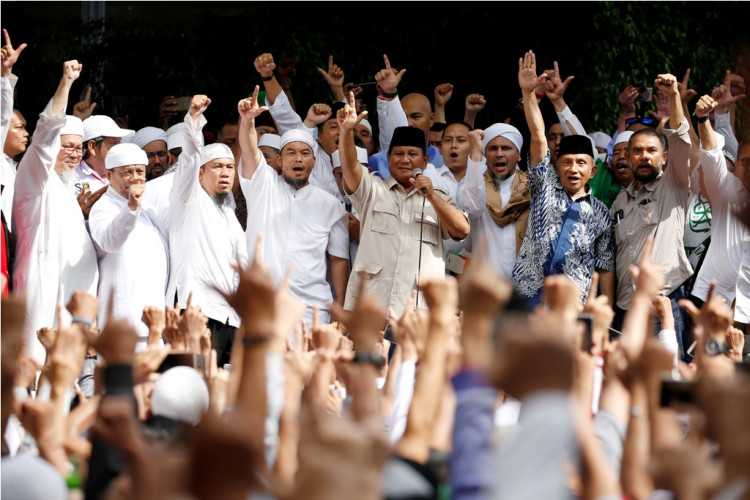Following the release of quick count results in this year's elections in Indonesia, Prabowo Subianto claimed he won the presidential race, and his camp obtained evidence of "widespread cheating" during the voting period.
According to BBC, quick count results indicated that incumbent President Joko "Jokowi" Widodo won the election. Jokowi has since declared victory following the release of unofficial tallies. Prabowo contested early results and also claimed victory.
To address the dispute, Indonesian authorities have intervened. National Police Chief Tito Karnavian said authorities would take "firm action" if unconstitutional and illegal acts are done to threaten public safety.
Jokowi declared that he won with 54.5 percent of the votes as revealed by 12 pollsters, but he urged Indonesia to wait for official results to be out. Prabowo, on the other hand, said he won with 62 percent of the country's votes.
This is the second face-off between Widodo and Prabowo with the former winning 2014's presidential election. At that time, Prabowo also contested the results, but the Constitutional Court rejected his challenge.
Bloomberg noted that Indonesia's General Elections Commission would reveal the official results after manual counts of ballots are completed by May 22. While both candidates have declared victory, the Commission has yet to release official quick count results next week.
While released results are unofficial, Indonesia's stocks saw a hike on Thursdays as investors rallied behind hopes of a stronger economy under Jokowi's second term as president. Bonds and currency also soared following the release of quick counts.
Meanwhile, economists have weighed in on the possibility of Jokowi reigning over Indonesia for a second time. Some analysts are expecting the 57year-old former furniture salesman to tackle the issue that disappointed some of Jokowi's supporters during his first term: human rights.
Yenny Wahid, a Jokowi campaign team member, told the South China Morning Post that the former mayor would focus on "human development" if he secures the presidency. Jokowi has received criticism for failing to live up to his promise of addressing human rights issues that Indonesia has been plagued with.
It is also expected that Jokowi will heed to calls for increased action on Indonesia's energy sector. According to The Jakarta Post, energy watchdogs reiterated that improvements are necessary to develop the sector's quality and growth rates.
"He needs to focus on improving infrastructure quality, services and increasing investment," executive director of the Institute for Essential Services Reform (IESR), Fabby Tumiwa, said of Jokowi's potential second term as Indonesian president.
Fabby noted that Jokowi should improve electricity supply in some of Indonesia's remote regions such as the Java-Bali area and other far-flung islands where power is still a problem.






